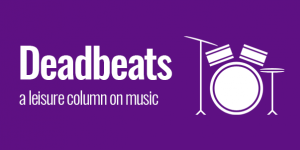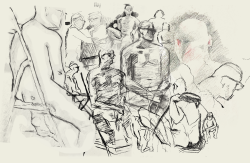Music festivals are certainly not a new concept. But in the past decade, they’ve drastically changed the way we enjoy our tunes – sometimes for the better, and others, for worse. Events like these offer more of a musical experience, giving audiences everything from elaborate special effects to raves on the lawn, two characteristics often found in EDM festivals.
If I can get past the humidity, the smell of pot, and the overpriced food, I can safely say these festivals have made some of my greatest summer memories. But what is most valuable about these performances to me (besides getting a hug from Brendon Urie, the vocalist from Panic! At the Disco, in the middle of his performance) is that these genre non-specific events attract a large group of diverse listeners.The crowd becomes an eclectic mix, bringing different aspects to the experience. Consider listening to Metallica at a concert, for example, versus seeing them at Lollapalooza – vastly different experiences. Having that mix allows new listeners to discover talent, and old listeners to share their love and spread their support. After all, that’s the best a fan can do for a band.
There are drawbacks, though. Having that larger mix of listeners in the audience, some of whom are less familiar with the artist, could take away from how the band interacts with the crowd, or can influence what music they play. One of the issues I see as the most obvious is that in effort to appease their audience, or gain more listenership, many artists will focus on performing their most popular songs, creating a sort of “pop death spiral,” where only more mainstream music gets discovered and listened to. Having these diverse fans can also take away from the quality of the performance; the artist has a limited time and is less likely to play new releases or hidden album gems during their set. It’s almost synonymous to throwing a party for your college and high school friends versus having two separate ones for the two separate groups. Your time would be more tailored and better spent when you can focus on the two different groups individually.
This doesn’t make this type of concert obsolete, though. Because these festivals tend to gather so much talent in one place, they have become the best way to get people talking about a new band. Gone are the days where the only way you discovered new music or genres was through the radio or flyers, followed up by physically going to a music store to pick up a copy of the band’s CD. Now, since it has become so much easier to download and discover new tunes online, music festivals spark a conversation, making new music more accessible and less of a burden on the listener. Listening to that one popular song at a concert can actually act more as a spark that leads listeners to the collection of the artist’s music waiting for them online. This can actually be seen as a benefit, and what I firmly believe is what is going to save the music industry from one of the biggest drops in revenue in recent history.
With the millennial generation choosing to pay nothing to listen to music, artists and bands are forced to turn to other options. Because music festivals are seen as amazing “deals” and marketed as experiences, they can get away with charging $300 per ticket. And the artists receive not only a better deal, but a bigger fan base, making it possible for growing groups to get the finances to one day perform at those smaller, more tailored events for loyal fans.
So when Deadmau5 complained in his interview with the Evening Standard that festivals make the event more about about the experience and relegate acts to mere pegs that keep the whole thing together, he may be correct – but is also missing the point. Music festivals are changing the way that people are discovering and interacting with music. It is making the experience more social, allowing listeners to experience new artists all at the same time, and most importantly, it’s fun. The job of these events is not to put all the attention on one headliner and let them steal the show. Music festivals are, in fact, a peg in a listener’s journey to build a more personal music collection.




